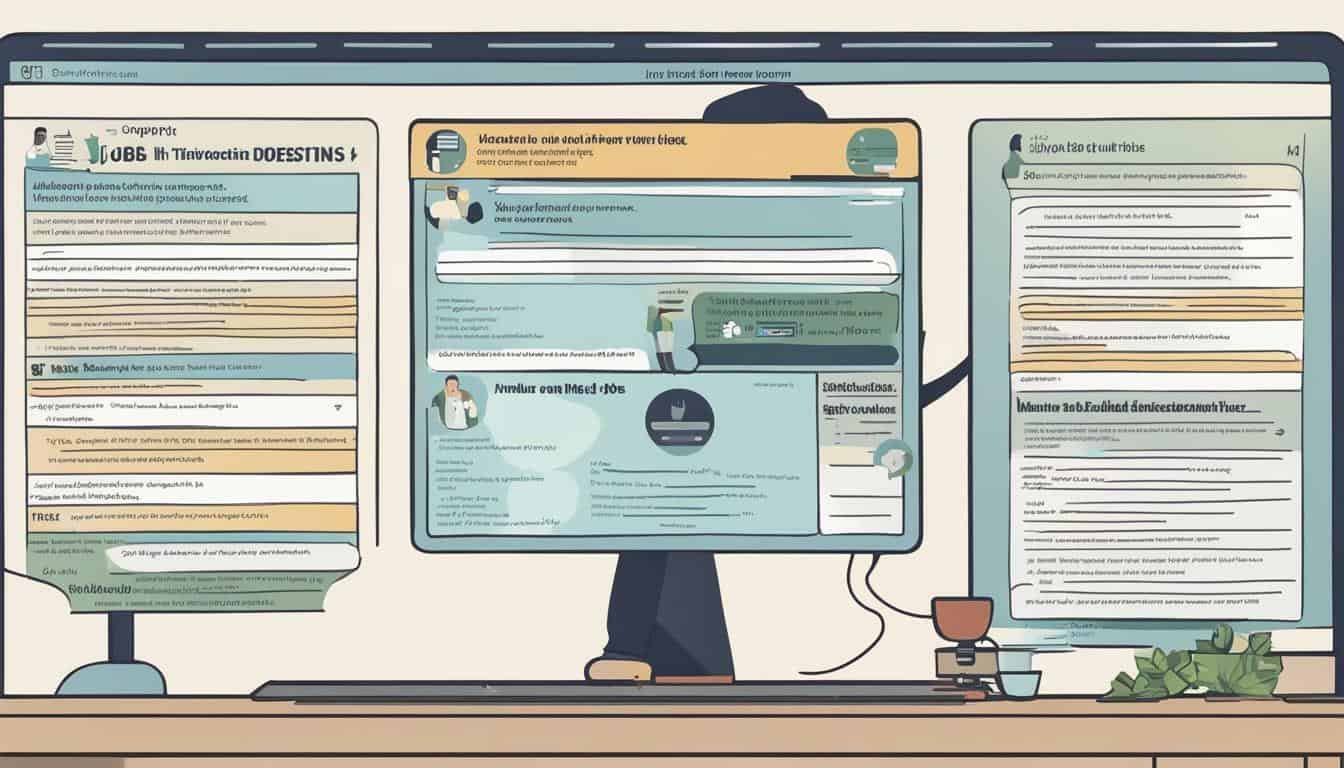In the landscape of modern employment, the concept of remote work has taken center stage, weaving itself into the fabric of our job search endeavors. We're witnessing a significant shift, as more companies have warmed up to the idea of offering remote job opportunities after the adjustment period of recent years. But are remote jobs hard to get? That's a question weighing heavily on the minds of job seekers everywhere. As with any job search, securing a remote position can be competitive, but the growing acceptance and demand for remote work opportunities have also created a larger pool of potential positions. The key is to remain persistent and flexible in your search, and to tailor your applications to emphasize your skills and adaptability in a remote work environment. Additionally, it's important to stay informed about the latest remote work opinions and trends to understand what companies are looking for in remote employees.
The numbers present a sobering reality: the odds are stacked against us as remote job seekers. With a hefty segment of enterprises considering remote roles as a standard offering, one might imagine securing remote employment would be less challenging. Yet, the truth is more complex. Despite the apparent availability, we find ourselves wrangling with a highly saturated pool of competitors, all vying for the same ticket to a work-from-home utopia. But fret not! Persistence, strategy, and the right approach can be the game changers in our remote job search.
The Current Remote Job Market Dynamics
As we delve deeper into the intricacies of the remote job market trends, it becomes clear that the competition for remote jobs is not only fierce but also profoundly affecting the socioeconomic landscapes of certain regions. If we look at the phenomenon of "Zoom towns" like Bend, Oregon, we see that finding remote work has become akin to striking gold in the modern era. In these towns, a substantial majority of job applications are for remote positions—a testament to the allure and demand for a more flexible lifestyle.
Yet, the remote work challenges persist. We see this reflected in the housing market data, displaying significant surges in home prices—an indirect byproduct of the remote work boom. A cursory glance at LinkedIn's job postings makes it evident that remote roles, while only making up a small slice of the available positions, attract a disproportionate amount of interest. Half of the job-seeking populace is vying for these coveted roles, underscoring the fierce competition that spills over into the national job market.
With large corporations in the tech sector reversing previous work-from-home policies, professionals are re-evaluating their career options, asking themselves whether to take the entrepreneurial plunge or adapt to hybrid work models. The changing tides of the remote job ecosystem suggest that for many, the dream of remote work may come with unexpected compromises or rerouted career paths.
- Zoom towns experiencing remote work-driven housing booms
- Remote roles represent a mere 11% on job platforms but see vast applicant numbers
- The recalibration of workforce strategies as tech giants recall employees
- The dilemma of entrepreneurship versus adjusting to a reshaped job market
We, as observers and participants in this evolving landscape, must reckon with these developments and acknowledge that the terrain of finding and securing remote work is no longer just a distant frontier—it's become an arduous battleground for many.
Are Remote Jobs Hard to Get?
In our pursuit of remote job opportunities, we’ve observed that the challenges are quite parallel to classic job hunting methods, albeit with a digital twist. The benefits of finding remote work are plentiful and range from the flexibility of our schedules to saving hours that would otherwise be spent in traffic. However, given the current employment landscape, acquiring these much-coveted positions can be as onerous as securing a coveted seat at a prestigious university.
We've noted that the tactics for a successful remote job application require more than a scattershot approach. It necessitates a curated course of action—seeking out specialty platforms like Flexjobs and Solidgigs can make a significant difference. Staying attuned to remote job qualifications and refining our remote job application tips are essential. It’s about individualizing our approach and fostering a professional persona that shines through the cold digital barriers. This might mean customizing each application or crafting a compelling digital portfolio that delineates a narrative of reliability and effectivity in a remote setting.
At the end of the day, to stand out in this digital arena, we must embody not only the requisite skill set but also demonstrate a high degree of self-discipline and enthusiasm for our craft. Those of us who adapt to the demands of remote roles—showing that we can not only survive but thrive in an autonomously driven environment—are the ones who will ultimately succeed. It’s a nuanced dance: projecting our intrinsic value while navigating the intricacies of the virtual job market is the key to unearthing and seizing remote job opportunities.





